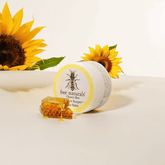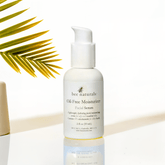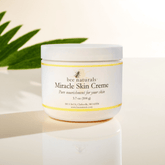Legislation Concerning Your Skin Care Products
Last week a bill was introduced to the United States Senate, one that stands to negatively impact small business owners around the nation. If passed, the bill will require owners of small and mid-sized cosmetic companies to take on some costly new expenses—such as annual fees and registration fees required to file ingredient reports with the FDA for each and every ingredient they use.
What Is The Point?
Locally owned handmade and cosmetic soap companies usually turn to food-grade ingredients, which are most often purchased in their local grocery or health food stores. This includes, but is not limited to ingredients such as: olive oil, coconut oil, fresh herbs, and essential oils. The question that comes to mind for many is what’s the point? If the ingredients are already deemed safe for sale and consumption, why is it necessary to register the ingredients for topical use—when none of the ingredients are man-made? On top of that, most of these artisan business owners proudly add their full list of natural ingredients to their label, as they act as a selling point because they are void of chemicals found in the overwhelming majority of cosmetic and beauty products sold by major brands and retailers.
Even if their ingredients cannot all be source from a local grocer, or the quantity of ingredients required leaves an artisan turning to a nationally recognized wholesalers—the wholesaler already adheres to FDA regulations.
For the midsized companies whose demand has outgrown home production, the impending regulations for licensing and labeling stands to significantly drive up the production costs.
How This Bill Will Punish Small Business Owners, As Well As The Local Communities They Serve
On average, handmade cosmetic companies currently employ 1 to 3 local residents. With approximately 300,000 such companies facing the increased expenses if this bill passes, thousands of jobs around the nation could be lost. In fact, some companies may not be able to afford these fees, subsequently causing them to close altogether. Even the number of startups in this field are likely to decline.
Those who do survive, even if the new expenses are a strain, will be less likely to test new product lines—and even launch new products. This is because the expense for each new ingredient may prove to be too high. In other words, this bill could stunt their growth potential.
Supporting A Fair Market Place
Those who oppose the bill are not only in support of a fair marketplace within the cosmetic and skincare industry, but a fair marketplace for small business owners in general. Also, we must not forget that small business owners are still a cornerstone of this country.
Congress stood by farmers who make food products like jams, cheese, and honey, as well as other locally owned artisan food producers by allowing exemptions to similar requirements under the Food Modernization and Safety Act. The hope is that similar accommodations will be made for handmade cosmetic companies who generate less than 2 million dollars in annual revenues.
The Surprising Supporters Of This Bill
Another interesting point is who is backing this bill—namely larger cosmetic and skincare companies. While the internet certainly allows small and midsized cosmetic companies to sell their products both locally and globally, are they truly a threat to major brands? Every major cosmetic and skincare brand began as part of the cottage industry, and did not have to navigate costly regulations during their formative years. While the demand for natural ingredients has led many major brands to use more natural ingredients, most have yet to make the move to completely natural ingredients. Does this make it fair that they are using their roomy budgets to turn to lobbyists whose work results in a bill to protect them from small to midsized business owners who provide the products consumers are asking for?
Last but certainly not least, if passed this bill not only causes financial strain for handmade cosmetic business owners—but begs the question of whether it also implies that natural ingredients are an equal safety concern as the man-made chemicals found in even the most common household and beauty products.







Leave a comment
Please note, comments need to be approved before they are published.